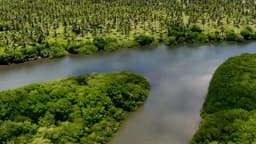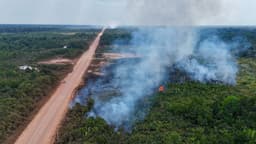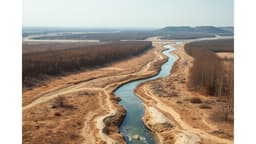Home / Environment / Amazon Railway Sparks Climate Clash at UN
Amazon Railway Sparks Climate Clash at UN
20 Nov, 2025
Summary
- Indigenous groups protest a planned 933km railway through the Amazon.
- Supporters claim the Ferrograo railway cuts logistics costs by 40%.
- Critics fear the railway will drive deforestation and displace communities.
Indigenous communities are voicing strong opposition to the proposed Ferrograo railway at UN climate talks in Brazil. This 933-kilometer (580-mile) project aims to connect Sinop in Mato Grosso to the Miritituba river port, significantly impacting the Amazon rainforest. Supporters, including agricultural organizations, champion the railway as vital for Brazil's booming soybean and corn exports, estimating it could cut logistics costs by up to 40% and lower CO2 emissions from road transport.
Conversely, environmental advocates and Indigenous leaders express grave concerns. They argue the Ferrograo will exacerbate deforestation, facilitate land grabbing, and displace riverside communities, mirroring negative impacts from increased barge traffic. Critics also point to Brazil's existing environmental licensing procedures as insufficient to protect the rainforest and its inhabitants, citing other controversial projects like oil exploration and highway paving.
The controversy comes as Brazil's environmental agency, Ibama, is in the initial stages of assessing the railway's environmental viability. The project's progress has been hampered by a Supreme Court suspension since 2021, following a constitutional challenge related to national park boundaries. While a judge recently voted to allow the project, the hearing is paused, leaving the Ferrograo's future uncertain amid ongoing legal and environmental scrutiny.




